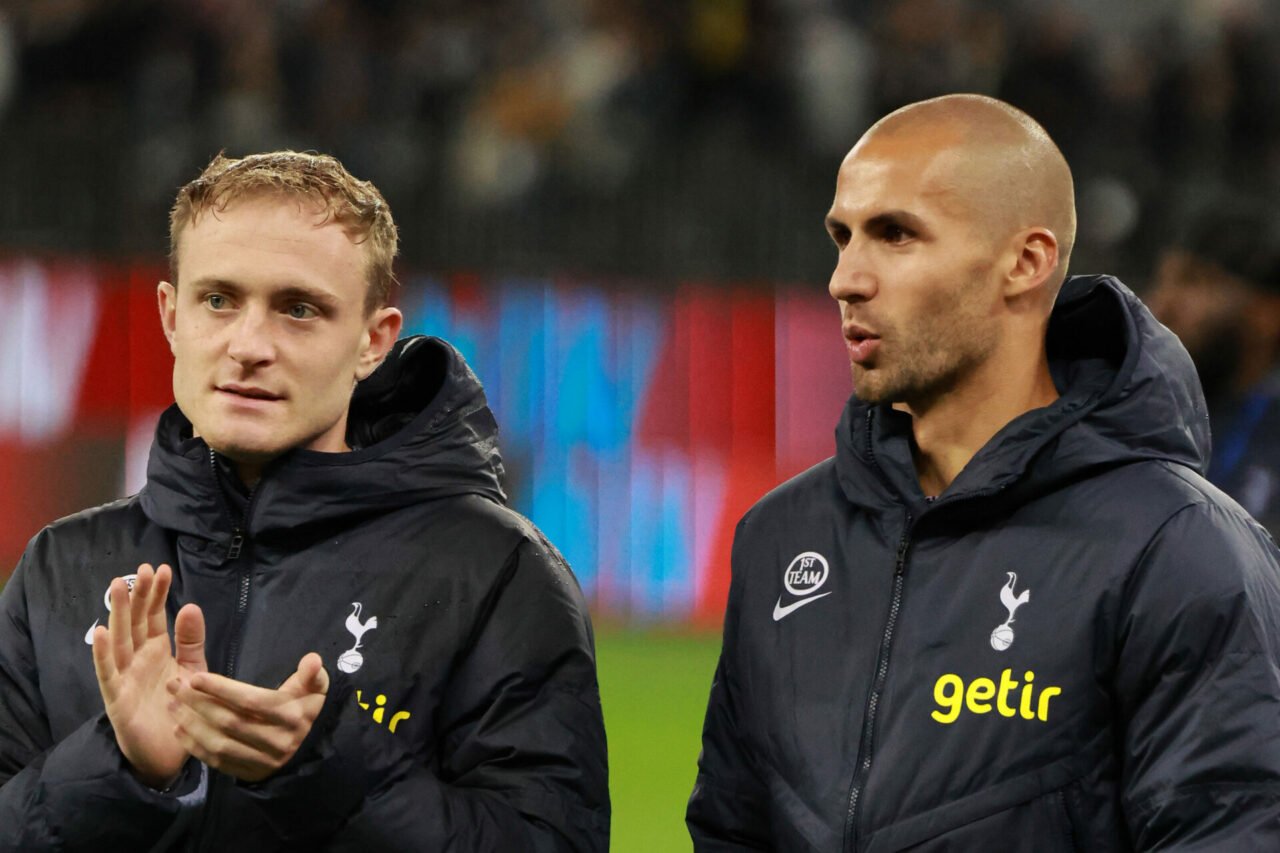Tottenham Hotspur may have grand plans for the summer transfer window, but the club will have to consider squad limitations when it comes to homegrown and club-trained players. Alasdair Gold explores the situation for Football.London, and comes up with some solutions for domestic and European competitions.
Ange Postecoglou has already improved the Tottenham squad dramatically within just one season and two transfer windows.
However, his most challenging window is on the horizon, with upgrades needed in the summer to equip Spurs for European football next season.
While certain positions are crying out for recruitment, there is the small matter of Premier League squad rules to consider, and the added challenge of juggling homegrown talent in any Champions League or Europa League squad, too.
What do Spurs need in their Premier League squad next season?
It’s a complex situation that is sure to give Postecoglou and the recruitment team a headache over the summer, but here’s a breakdown of what Spurs need to keep in mind when venturing into the transfer market.
As per registration rules for the Premier League, Spurs must name a 25-man squad. Within that, a maximum of 17 non-homegrown players can be registered, with a minimum of eight players needed to be trained in England for 36 months prior to their 21st birthday.
While Under-21 players can be registered without taking up a spot, the likes of Pape Sarr, Radu Dragusin, and Destiny Udogie will all need to be named in the squad next season as they get older. Unfortunately, Sarr’s loan spell at Metz rules him out of being a homegrown player for Spurs.
MORE SPURS STORIES
On the plus side, both Eric Dier (raised in Portugal) and Ivan Perisic (trained in Croatia) will vacate the squad list at the end of the season.
Working on the assumption that Sergio Reguilon and Bryan Gil will not be in Tottenham’s squad next season, but Timo Werner will (if his stay is made permanent), Spurs would already have 17 non-homegrown players on their books, meaning any new signings would need to be homegrown.

What do Spurs need in their squad for European competition next season?
Assuming Tottenham qualify for some form of European football next season, things will get a little bit more complicated.
Essentially, the homegrown rules become more strict, with eight players needing to be locally-trained, and four of those needing to be developed specifically at Tottenham Hotspur. If Spurs cannot manage that, their squad of 25 players will be reduced accordingly — if you have seven homegrown players, you can only name a 24-man squad, for example.
Luckily, Welsh players do count towards this, so Spurs can rely on Ben Davies and Brennan Johnson to boost their numbers, albeit as association-trained, rather than trained by Tottenham.
Clubs can name an A list and a B list, with players under the age of 21 landing in the B list. But they must have trained at the club for a minimum of two years, meaning the likes of Alejo Veliz and new signing, Lucas Bergvall, will have to be on list A if they are to play in Europe next year.
Another pitfall is that Sarr, who arrived at Spurs on August 27 2021, will not technically have completed two years at the club by the time the squad needs to be registered. Otherwise, he could have counted as a homegrown player in European competitions.
Tottenham’s current crop of club-trained players is: Brandon Austin, Alfie Whiteman, Oliver Skipp, Troy Parrott, and Japhet Tanganga. The future of all of those players is up for debate, but UEFA rules will mean that some of them may be retained to fulfil the quotas.
Spurs Web Opinion
Well, that’s a bit confusing, isn’t it? But the top and bottom of it is, Spurs will need to get rid of a few more fringe players — perhaps someone like Giovani Lo Celso — if they want to bring in any more non-homegrown players. And, some of our club-trained players may survive the cull based on their homegrown status.
Keep up to date with all the latest Tottenham news and opinion by following SpursWeb’s Facebook, Twitter and Instagram accounts.


